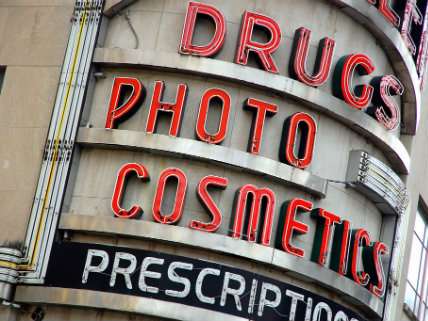The FDA Is Now Regulating Tweets

I can't imagine what kind of people follow pharmaceutical companies on Twitter, but apparently some do. Seeing as following folks on Twitter is completely voluntary, I assume those who do find their tweets informative, interesting, or useful in some way. But tweeting about pharmaceuticals will be effectively banned if new Food and Drug Administration (FDA) guidelines are adopted. Under draft guidelines proposed Tuesday, any pro-prescription drug tweet from a drug company would also have to list risks and side effects.
Because Twitter is a medium built on non-voluntary brevity, the new rule would make legally tweeting about prescription drugs nearly impossible. According to the FDA, risk information includes "all risk concepts from a boxed warning, all risks that are known to be fatal or life-threatening, and all contraindications from the approved product labeling," in addition to a hyperlink to more detailed information.
There are potential workarounds—attaching an image with a drug's complete warnings label to all tweets, using a tweet extension app like TwitLonger—but whether these would suffice for the FDA is anyone's guess. The draft guidelines would also require drug companies to include a product's exact indication ("mild to moderate memory loss" as opposed to just "memory loss" was the FDA's example).
"If a firm concludes that adequate benefit and risk information, as well as other required information, cannot all be communicated within the same character-space-limited communication, then the firm should reconsider using that platform for the intended promotional message," the agency says.
The whole matter (like so many the FDA tackles) seems to involve searching for a problem that doesn't exist. There are already ample ways a person can find out about a drug's risks and side effects; and because these are prescription drugs, it's not as if a person can run out and buy them based on one Tweet. At some point, a doctor, pharmacist, and boatload of pharmaceutical literature will confront patients before they get their hands on it, providing ample opportunity for discussions about, recitations of, and printed warnings listing risks and side effects.
Thomas Sullivan, editor of the Policy and Medicine blog for medical education company Rockpointe, said it wasn't clear whether abbreviations or shortened words would be allowed.
"The FDA isn't necessarily up on the realities of social media," Sullivan said, adding that the agency has offered to allow companies to submit their tweets for approval beforehand.
Sullivan said that Facebook, which has no character limitations, might still be useful for drug sellers looking for some traction on social media. So far the agency has refrained from suggesting regulations for image sharing sites like Pinterest and Instagram, Sullivan said.
I'm sure it's only a matter of time, the way things are going.
But should we automatically dismiss the idea of regulating how drug companies can advertise on social media? Twitter and Facebook are, after all, advertising platforms in this context; and the FDA governs how drug companies advertise in more traditional mediums. Rightly or wrongly, the FDA currently has the authority to require risk disclosures in printed or broadcast drug advertisements. But it can't compel a person, even a company spokesperson, to follow all statements about X with Y and Z. So is a drug tweet more like a television ad or an uttered statement? Does it matter?
Advertisement or not, commercial speech is still afforded protections by the First Amendment—even commercial speech from drug companies. And I'm a fan of erring on the side of free speech. If a drug company makes false statements on Twitter, there are already existing legal correctives for that. But that's not what we're facing. The FDA's Twitter guidelines seem to surpass what consumer protection warrants and cross over into unconstitutional speech infringement.


Show Comments (14)